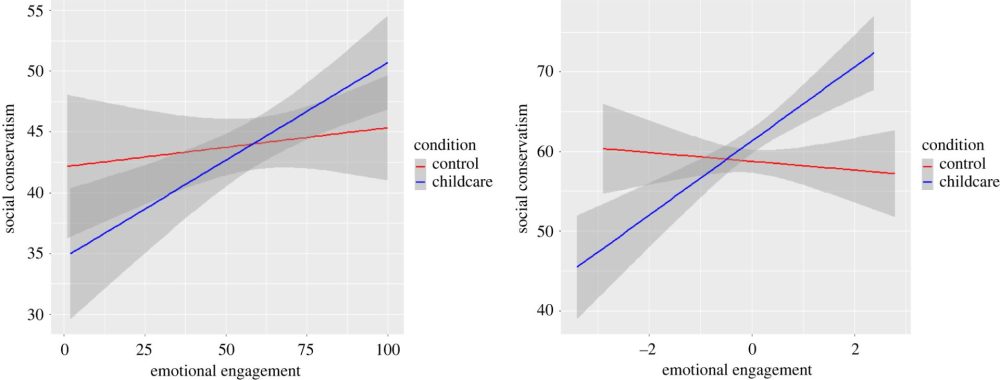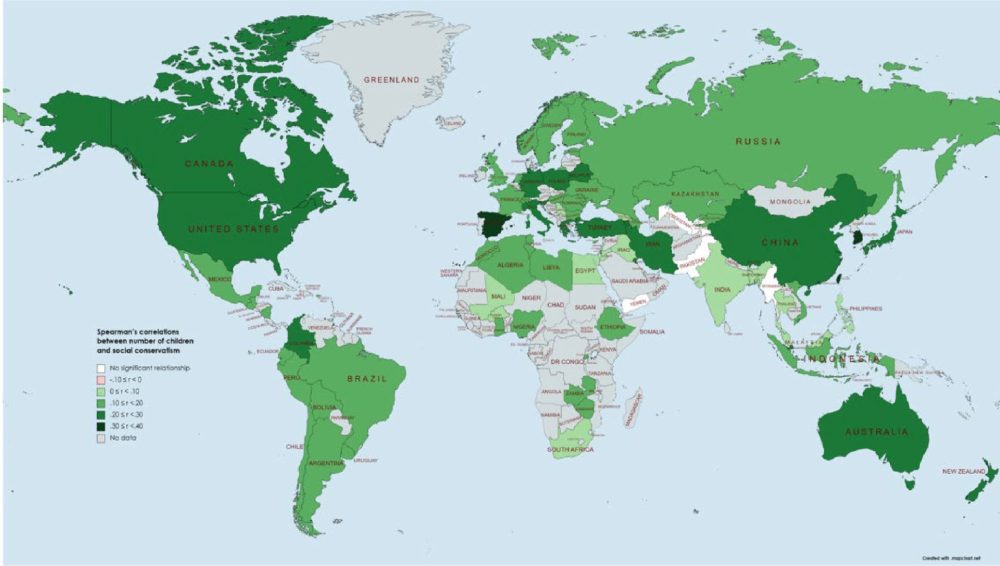A series of four studies by researchers from the United States, Chile, Australia, South Korea, Poland, Japan, Denmark, and Serbia has concluded that “[t]he motivation to care for children is consequently among the fundamental drivers of human behaviour, but its power to shape social attitudes and cognition is under-appreciated.”
The studies revealed “cross-cultural and experimental evidence suggesting that parental care motivation leads to increases in socially conservative attitudes, and that parenthood is associated with social conservatism around the globe.”
The report lends credibility to the colloquial use of such phrases as, “You’ll understand when you have children of your own,” and directly calls into question the link between conservatism and wisdom through age, versus conservatism as a result of parenthood.
Conversely, researchers noted that failure to have children necessarily leads to a greater acceptance of socially liberal or degenerate behaviors, such as support for abortion, homosexuality, sexual promiscuity, or infidelity/adultery.
The multi-study paper, entitled “Experimental and cross-cultural evidence that parenthood and parental care motives increase social conservatism”, was published in the journal Proceedings of the Royal Society B over the summer. Conclusions were drawn from a survey of 2,610 people in 10 countries and a separate study into archival data from over 400,000 individuals in 88 countries.

According to the research, not only does parenthood (or the motivation to care for children) directly correlate with the shaping of social attitudes, it also appears to be affected by the number of children one has:
Although number of children is not necessarily a reflection of parental care motivation, parents with more children have a greater investment in the interests of their children, and are likely to spend more time (and resources) on childcare. Thus, there may be an amplification of the motivational changes associated with parenthood, especially in the case of people with multiple young children. Indeed, number of children was positively related to sexual conservatism and accounted for more overall variance than the dichotomous parenthood variable.
The fourth study in particular, which sought to test the correlation between parenthood and socially conservative attitudes around the world, identified “that parenthood and number of children were robust correlates of three core components of social conservatism across the majority of countries around the globe.”

Researchers also conducted experiments with participants, finding that individuals who wrote about positive interactions with children were more socially conservative than their counterparts who were asked to think about non-child-related experiences.
“Given that socially conservative values ostensibly prioritize safety, stability and family values, we hypothesized that being a parent or being more invested in parental care might make socially conservative policies more appealing,” explained Nicholas Kerry, PhD and paper co-author.
“Parental status and parental care motivation were robustly associated with social conservatism in many diverse countries, from Lebanon to Japan.”
The study comes as various corporate and left-leaning groups such as the World Economic Forum (WEF) and Black Lives Matter (BLM) have sought to abolish the nuclear family in favor of a Marxist social structure.
BLM, for example, stealthily took down part of its “What We Believe” page that condemned America’s “Western-prescribed nuclear family structure” while climate change activists have attempted to dissuade people from having children due to their supposed environmental impacts.
The paper itself notes the political implications of its findings, noting China’s ‘one child policy’, birth control, and abortion.
“Similarly, given that birthrates are declining in most of the world—but increasing sharply in some regions — the current findings could have profound implications for the political landscape of the future. Specifically, our findings would suggest that global increases in childlessness could potentially contribute to a process of liberalization on social issues. Consequently, integrating these findings into existing models of political attitudes may contribute to more accurate models of population-level shifts in ideology.”
The authors reported no competing interests or conflicts, and received no funding for this study, which you can read in full here.

